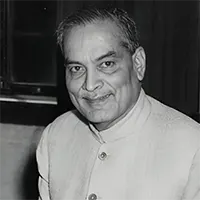.jpg)
The history of medical education in Bengal started with the establishment of the Medical College Calcutta on 28th January, 1835. Its purpose was to train native youths in Medicine irrespective of caste and creed. The year 1836 was a landmark in the history of Indian medical teaching when the first dissection of a human corpse was conducted by Madhusudan Gupta, a student of the first batch. Eminent persons of Calcutta during that period including Ram Kamal Sen, Dwarkanath Tagore, supported medical education by providing scholarships and prizes for academically brilliant students. With the financial help of Dwarakanath Tagore, four brilliant students of the college were sent to England. Among them Gopal Chandra Seal, DwarakaNath Bose, BholaNath Bose, cleared the MRCS (Member of the Royal College of Surgeons) examination in 1846 and returned to India to join the Medical Service.. The college produced many eminent alumni namely Sir Nilratan Sarkar, U N Brambhachari, Bidhan Chandra Roy, whose contribution to medical science subsequently are legendary. Kadambini Ganguly, a Bengali Brahmo lady, became the first Indian woman to be admitted in a medical college.
The other medical colleges of then Bengal were the Cambell Medical School founded in 1884 (later NRS Medical College) and the Carmichael Medical College (later R G KAR Medical College) founded in 1886 as Calcutta Medical school. Famous personalities like Dr UN Brahmachari discovered the Urea Sbamine working in NRS Medical college in 1922 while Dr Sambunath Dey isolated the Cholera toxin
The Presidency General Hospital or PG Hospital built in 1770, was the oldest hospital in Kolkata, initially meant for treating only Europeans. Later it came to be known as Seth Sukhlal Karnani Memorial Hospital. Sir Ronald Ross made his epochmaking-discovery of "Cycle of Malarial Parasite" in this hospital and was awarded Nobel Prize in Medicine and Physiology on 10 Dec 1902. Later this became a premier post graduate institute renamed as IPGMER in 1957.
Not to forget, it should be mentioned that, Bengal Chemicals & Pharmaceutical Works Ltd. (BCPW) established in 1901 by Acharya P.C. Ray, renowned scientist , was the first Indian Company for production of quality Drugs & Pharmaceuticals, Chemicals and Home Products with indigenous technology with the objective to create awareness in the minds of Indians to become self-sufficient.

(1800 – 15 November 1856) was trained in Western medicine and is credited with having performed India's first human dissection at Calcutta Medical College (CMC) in 1836.

(18 July 1861 – 3 October 1923) was a medical doctor in India & was first Indian women to have practised with a degree in modern medicine & the first woman to gain admission to Calcutta Medical College in 1884, She was the first woman speaker in the Indian National Congress.

(23 August 1852 – 19 December 1918) Proceeded To Write Various Books In Bengali To Make Medical Education More Accessible. He wrote several books and notable among them are 'Concise Physiology', 'Rogi Paricharchyya', 'Vishaka Suhrid', 'Plague', 'Illustration and Brief Theory of Gynecology', 'Brief Infant and Child Medicine', 'Brief Physiology', and 'Kaviraj Doctor News'. He established Asia's first private medical school in association with some of the best Bengali doctors of Calcutta ( 'Calcutta School of Medicine')

received a knighthood for his contributions to medical education. Sircar was awarded the honorary DCL and LLD degrees by the universities of Oxford and Edinburgh respectively. In 1940, the University of Calcutta conferred on him the D.Sc. degree. After his death, his alma mater, the Campbell Medical School was renamed Nil Ratan Sircar Medical College and Hospital.

FRSM FRS(19 December 1873 – 6 February 1946) was a leading Indian physician and scientist who synthesised urea-stibamine (carbostibamide) in 1922 and determined that it was an effective treatment for kala-azar (visceral leishmaniasis). He was awarded the title of Rai Bahadur and awarded the Kaisar-i-Hind Gold Medal, 1st Class by the Governor General Lord Lytton (1924), In 1934, he was conferred a knighthood by the British Government (1934)

CIE, FNI, FRASB, FIAS, FCS ( 2 August 1861 – 16 June 1944) established the first modern Indian research school in chemistry and is regarded as the Father of Indian Chemistry. The Royal Society of Chemistry honoured his life and work with the first ever Chemical Landmark Plaque outside Europe. He was the founder of Bengal Chemicals & Pharmaceuticals, India's first pharmaceutical company.

MRCP FRCS (1 July 1882 – 1 July 1962) , an Indian physician , served as Chief Minister of West Bengal from 1950 until his death in 1962 had played a key role in the founding of several institutions and the cities like Salt Lake (now a part of Bidhannagar Municipal Corporation) and Durgapur. In India, the National Doctors' Day is celebrated in his memory every year on 1 July. He was awarded the Bharat Ratna, India's highest civilian honour in 1961.
© APICON 2025. All Rights Reserved. Designed by CONCEPT CONFERENCES PVT. LTD.